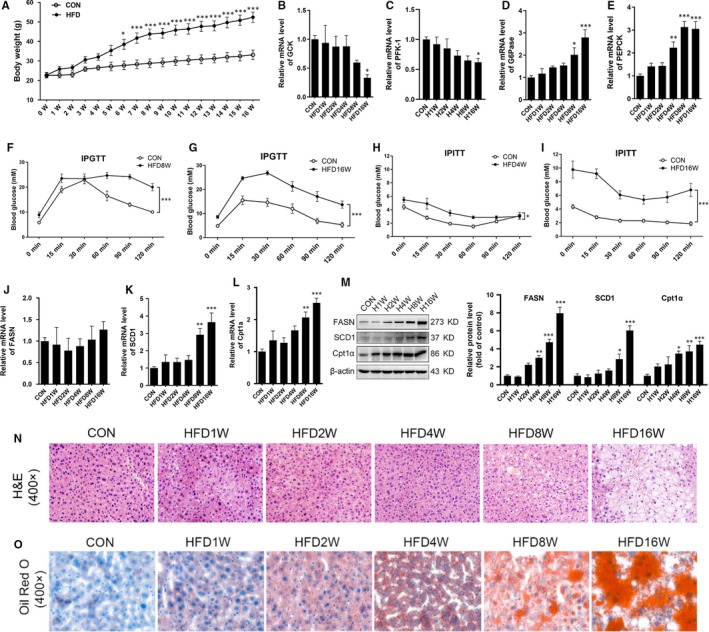Figure 1.

High‐fat diet induced metabolic reprogramming and insulin resistance in mice. Eight‐week‐old male C57BL/6 mice were randomized into two groups: standard normal diet (CON) and high‐fat diet (HFD). The mice maintained on a standard normal diet or HFD (60% fat) for 16 wk. A, Bodyweight was measured weekly. B‐E, The mRNA of glucokinase (GCK), phosphofructokinase‐1 (PFK‐1), glucose 6 phosphatase (G6Pase) and phosphoenolpyruvate carboxykinase (PEPCK) in the liver tissue of mice was measured. F and G, Intraperitoneal glucose tolerance test (IPGTT) was performed in mice on HFD for 8 and 16 wk. H and I, Intraperitoneal insulin tolerance test (IPITT) was performed in mice on HFD for 4 and 16 wk. J‐L, The mRNA of fatty acid synthase (FASN), stearoyl‐CoA desaturase 1 (SCD1) and carnitine palmitoyltransferase 1 (Cpt1α) in the liver tissue of mice was measured. M, The protein levels of FASN, SCD1 and Cpt1α in the liver tissue were measured. N and O, Haematoxylin‐eosin (H&E) and oil red O staining revealed markedly enhanced micro‐ and macrovesicular steatosis in the livers of mice on HFD. Representative images are shown (400×). All values are presented as mean ± SEM. *P < .05, **P < .01, ***P < .001 (vs CON). n = 6
